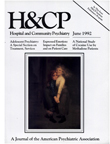The Impact of Divorce on Adolescents
Abstract
A consensus that divorce constitutes a major disruption and disequilibrium in the lives of nearly all children is emerging. Reactions vary at different developmental stages. Divorce poses a very specific hazard to the normal adolescent process of emancipation from primary love objects. The author reviews recent research on the shortand long-term effects of parental divorce on adolescents, with special reference to adolescent developmental tasks. Treatment based on a psychoanalytic developmental perspective combined with a family systems approach is recommended. Careful attention should be paid to the gender of the therapist and the adolescent's developmental stage. Therapeutic modalities include individual and group therapy with the adolescent and conjoint therapy with the custodial parent, the single-parent family, and the noncustodial parent. The major goals of psychotherapeutic intervention with adolescents in divorced families are outlined.
Access content
To read the fulltext, please use one of the options below to sign in or purchase access.- Personal login
- Institutional Login
- Sign in via OpenAthens
- Register for access
-
Please login/register if you wish to pair your device and check access availability.
Not a subscriber?
PsychiatryOnline subscription options offer access to the DSM-5 library, books, journals, CME, and patient resources. This all-in-one virtual library provides psychiatrists and mental health professionals with key resources for diagnosis, treatment, research, and professional development.
Need more help? PsychiatryOnline Customer Service may be reached by emailing [email protected] or by calling 800-368-5777 (in the U.S.) or 703-907-7322 (outside the U.S.).



